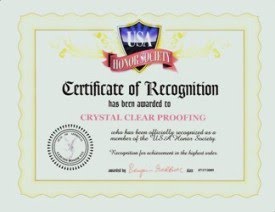
Who is used as the subject of a sentence.
Whom is used as an object in a sentence.
_________________________
Who was at the conference?
Whom did you see at the conference?
In the first sentence above, who is the subject.
In the second sentence, you is the subject and whom is the direct object (of who was at the conference).
_________________________
Who is the book dedicated to? Who is the subject.
To whom is the book dedicated? Whom is the object (of the book).
_________________________
A practically fail-proof exercise to help determine which is correct to use is to replace the word in question with he/she or him/her.
He/she is the equivalent of who (subjective) and him/her is the equivalent of whom (objective). For example:
Who/Whom should I ask to review the book?
I should ask he/she...
I should ask him/her...
I should ask him/her to review the book is right. Therefore, Whom should I ask to review the book? is the correct choice.
________________________
Whom is also used as the object of prepositions - words such as to, for, about, over, of, after, from or before. If one of these prepositions is present, it will precede the word whom.
Examples
The letter should begin with, "To Whom It May Concern."
For Whom the Bell Tolls.
About whom should I write to book?
The heated discussion was over whom?
You indicated the book was a biography of whom?
After whom do I give my presentation?
From whom do you expect to receive a good review?
Before whom do I stand in line?
________________________
SYNOPSIS
Who is used as the subject of a sentence.
Whom is used as an object in a sentence.
Substituting he/him or she/her is an excellent exercise in determining which word to use.
Whom is used when followed by prepositions such as to, for, about, over, of, after, from or before.
How the sentence is structured can change which word you use.
Whom in many situations is more formal than who. You can say:
"Who are you talking to?" or
"To whom are you talking?" (Notice the word to before whom.)

































































Perfect! Got it. (wink) I keep all these tutorials in a bookmarked file now. Wish I'd have been reading this blog several years ago when I first started writing books. But I catch on fast, lol. I've gotten to where I enjoy editing almost as much as writing. You learn so much from the process - what NOT to do, what works and what doesn't, etc.
ReplyDeleteHey I have a short tutorial of my own up today on my blog - I'd be interested in YOUR comment, for sure! (wink)
Peace out,
The Old Silly
Oh ick,. think I suck at this too...
ReplyDeleteGreat tutorial!! I'm saving this one.
ReplyDeleteMarvin: You are SO good for my ego! (wink!) And your post today is fabulous!!
ReplyDeleteDiane: Actually this is good! It means I'm posting information that is helpful! If everyone were to say, "yeah, I knew that" - well you see my point! (smile!)
Chris: Thank you! Comments like that make these "techie" posts woth the effort!
Now I know to whom I should speak if I have a who/whom issue. :)
ReplyDeleteElizabeth
Mystery Writing is Murder
Thanks for the quick tutorial. Reminders are always welcome.
ReplyDeleteElspeth
I think you have found your calling dear friend. Another great tutorial. Maybe I should send my granddaughter to your site for lessons!
ReplyDelete